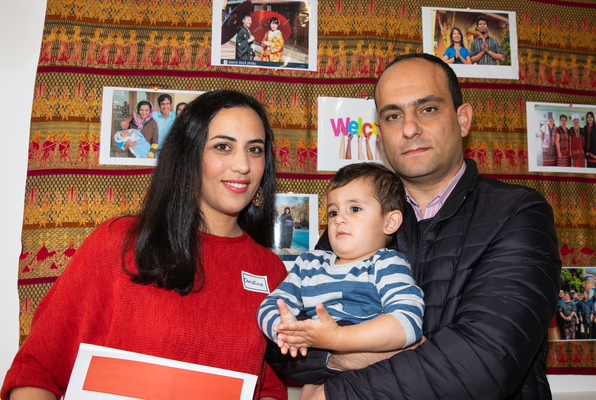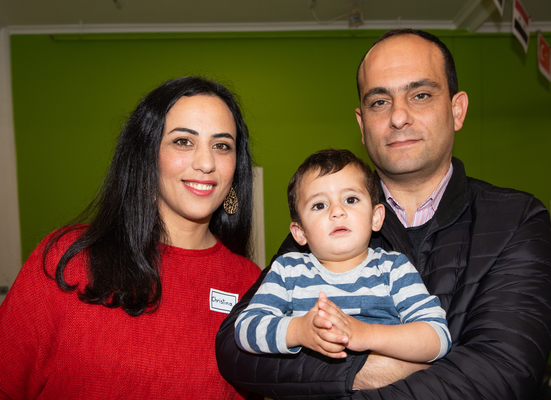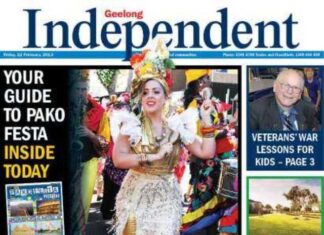Even when bombs exploded less than a kilometre from her house Christina Frasheh was reluctant to leave her hometown of Mahardah.
“It wasn’t easy to make a decision because we had already studied a lot and worked really hard,” the 35-year-old Syrian GP and refugee said.
“But after having children my way of thinking changed.”
Wall-shaking explosions in the predominantly Christian town of 25,000 people were part of life since war broke out in 2011.
“I think every part of the town has been bombed and this makes life a bit difficult,” Christina said.
“You could be anywhere and it could fall down next to you. It could be your relative or friend. This makes it more difficult.
“But people get to know the direction the bombs come from, they sort of adapt.
“You can’t stop a rocket but they are dealing strongly and bravely with it because it’s a part of everyday life. They have to live their lives, they can’t just hide all the time.”
She and her husband had a basement and would shelter others without an underground room of their own.
“One day a big bomb or rocket hit a place which is maybe 400m from our house,” she said.
“The sound was extraordinary. We went outside after about one hour and saw little shards of metal. A woman (inside the building during the explosion) died immediately.”
But Christina gave birth to two boys, now aged three and one, and in 2017 the bombing intensified as US-backed rebels attempted to take the town.
“The mums who send their children to school or childcare, I could imagine their feelings,” she said.
“Maybe when their children are on a bus or in childcare a bombing could happen.”
On 23 March Christina and her family fled the town and applied for asylum.
They spent a year in Iraq before migrating to Australia and settling in Bell Park in May 2018.
“It’s quieter here and we are living in a nice house with a backyard where the children can play,” Christina said.
“I appreciate so much that this country has welcomed us and given us an opportunity.”
Christina talks regularly with relatives that have chosen to remain, like her parents.
She remembered cutting short a video chat with her mother when townspeople blew whistles in the background, a warning system her town has developed.
Her parents called Christina back after they emerged from their basement, much to her relief.
“My mother likes to walk – she hasn’t stopped it,” she said.
“She just gets up earlier in the morning. She says, ‘the bombers will still be asleep’.”
The pathologist and her dentist husband are studying again to qualify to practice in Austalia.
“There are many steps to do,” she said.
While Christina speaks good English, she admits she has “weak points”.
She is one of many refugees studying English in Geelong course that Wyndham Community and Education Centre took over this year.
“We moved to somewhere where we could make more of an impact,” he said.
Former Melbourne teacher Angus Giles moved to Corio with his family to teach the course, which he described as a welcome change from teaching “hundreds of very wealthy Chinese students” at Monash College.
“I absolutely love what I do,” he said.










